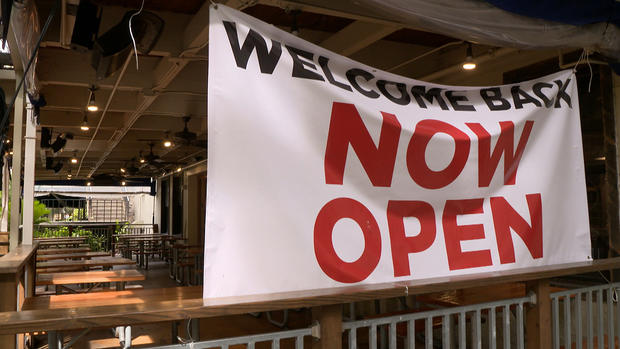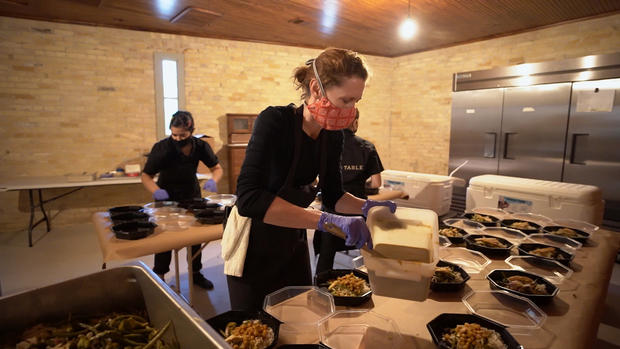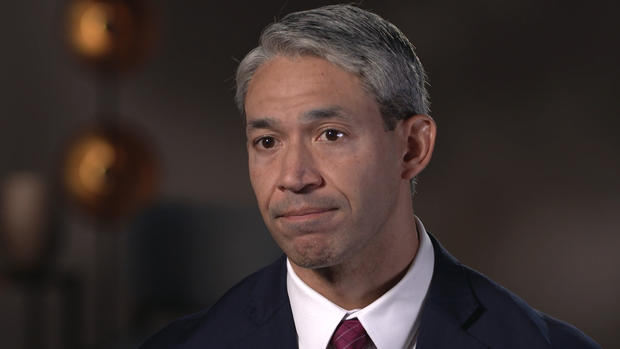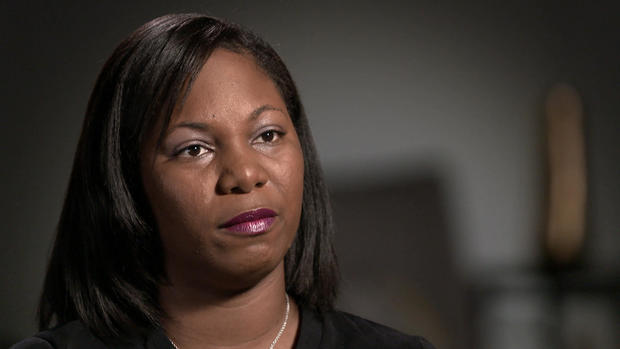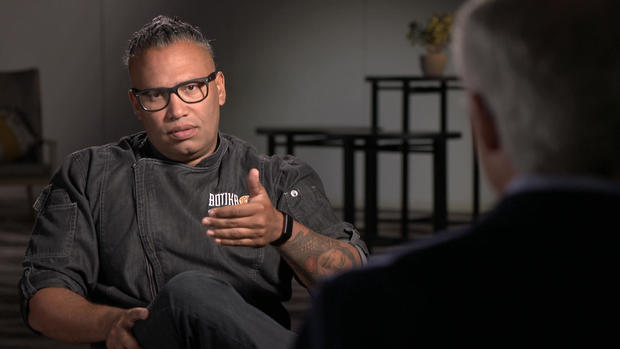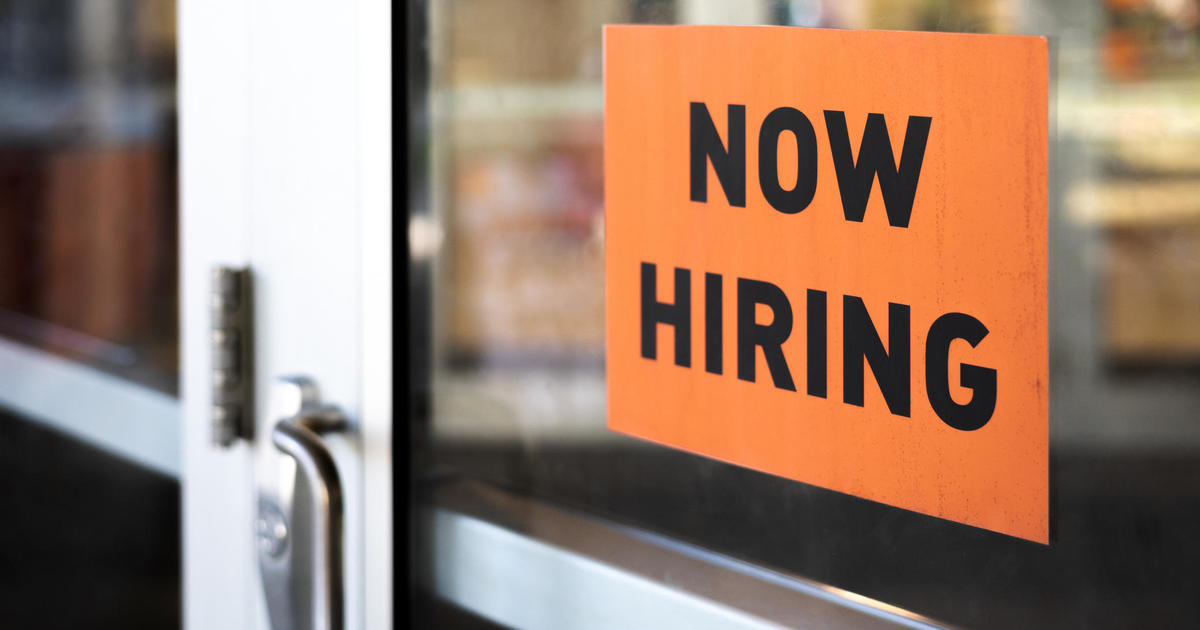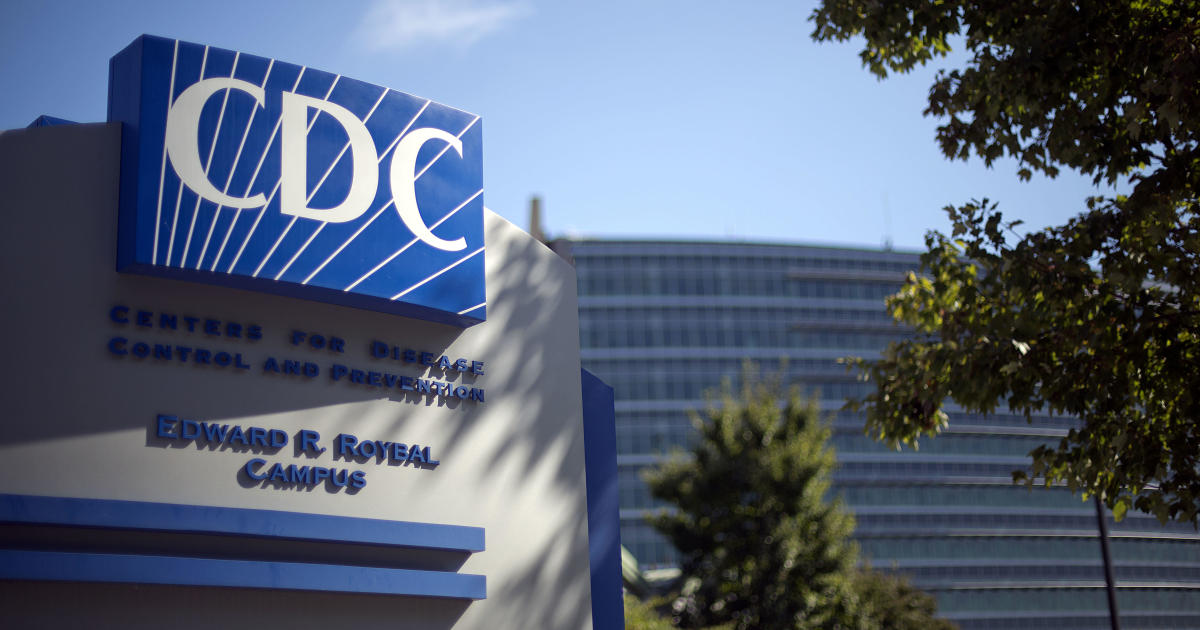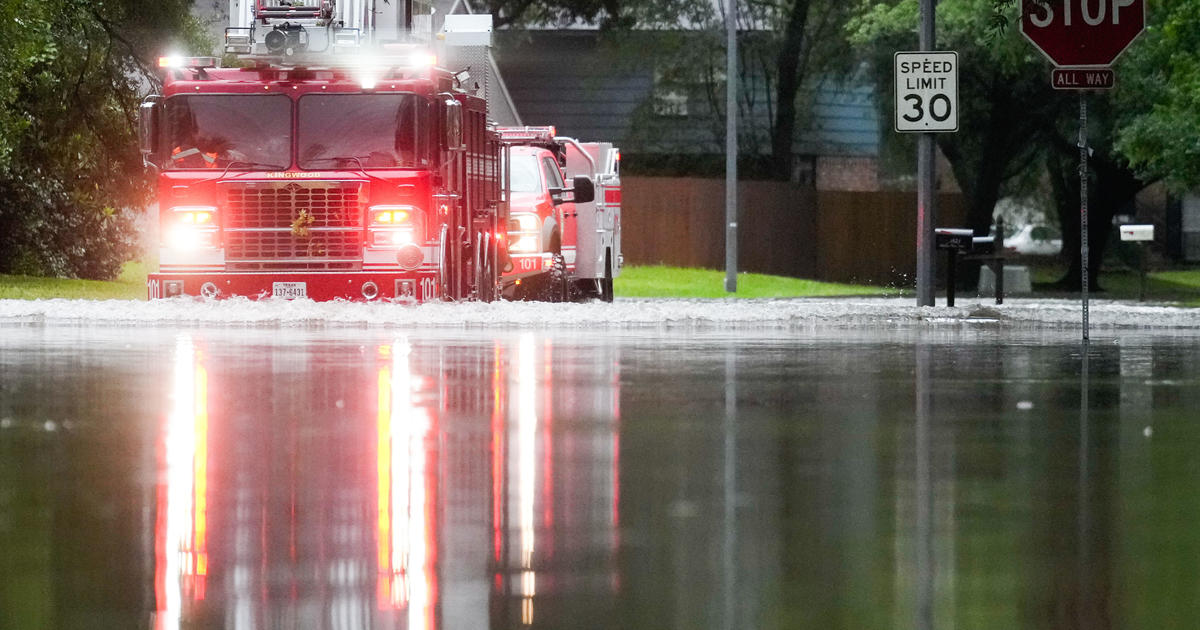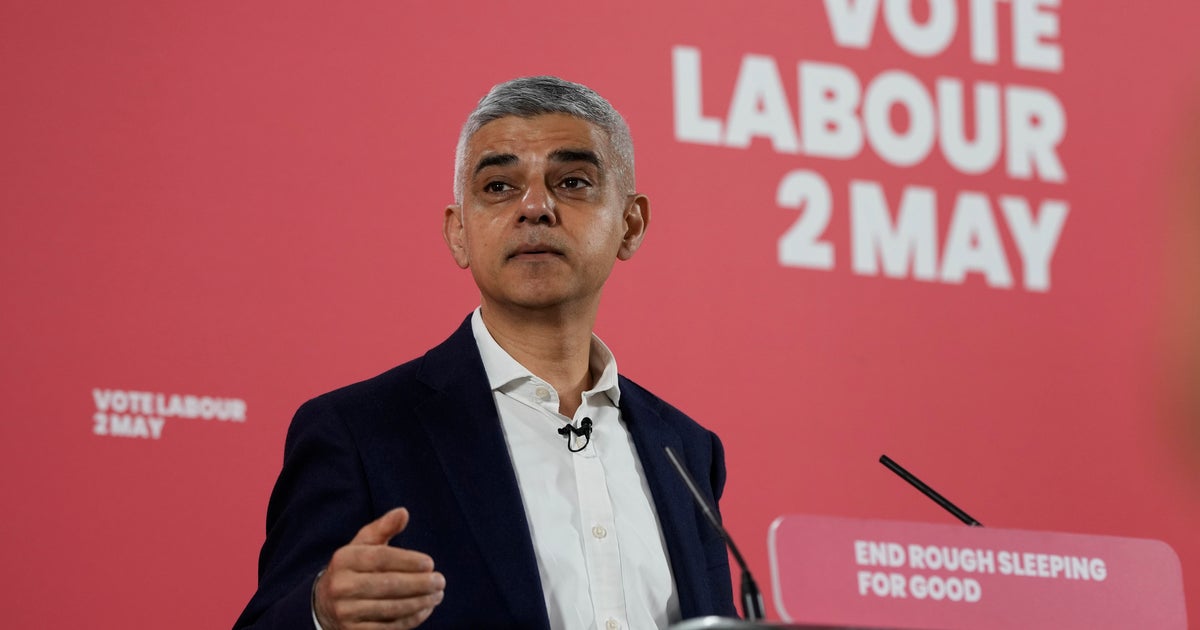San Antonio businesses on the long road back from the coronavirus pandemic
We were pleasantly surprised, Friday, when the Federal Bureau of Labor Statistics said unemployment had fallen to just over 13%. But, there was a mistake. The BLS says, due to a "misclassification error," the jobless rate was likely three percentage points higher, above 16%. In the confusion of the pandemic, it's estimated nearly 5 million furloughed Americans weren't counted as unemployed. Friday's report also said joblessness fell for whites and Hispanics, but increased slightly for black and Asian Americans. It's another sign of uncertainty as the U.S. reopens with no vaccine. Many states are now suffering a surge in COVID cases including California, Florida and Texas. We looked for hints of our future in San Antonio. America's seventh largest city. It's known as the Alamo City and it's preparing for a long siege.
Scott Pelley: What does your business mean to you?
Elizabeth Johnson: It's like a child. It's my family. It's my dreams.
Scott Pelley: And where do you find yourself today?
Elizabeth Johnson: Working harder than I've ever worked in my entire life, earning a fraction of what we're used to earning. And waking up in the middle of the night, trying to figure out how we're gonna keep the boat floating.
Her boat is Pharm Table. Elizabeth Johnson's restaurant floats, on the federal bailout that pays her employees and money from charities that pay her to feed the hungry.
Elizabeth Johnson: If we can just make it to October and November without another relapse of COVID, without another stay-at-home order and shutdown that gives me hope.
Scott Pelley: If there is a resurgence, can you beat that?
Elizabeth Johnson: I have to. Failure's not an option.
She has no option but to improvise. Her federal payroll protection money runs out in July. Can she open and stay open at the state mandated 50% capacity?
Elizabeth Johnson: It is a hope and a prayer that we do not have a second wave between now and then. It is a hope and a prayer that our customers are going to continue to support and frequent us. And that they aren't just-- trying to quarantine themselves in their homes.
The historic, $3 trillion federal bailout, was far-reaching but not far-sighted. Paycheck protection money for many businesses, higher unemployment benefits and bans on foreclosures for federally-backed mortgages run out this summer. In March, two days after the bailout was signed, the view from the Rose Garden was rosy.
President Trump on 3/29/20 in the White House Rose Garden: We can expect that, by June 1st, we will be well on our way to recovery. We think, by June 1st, a lot of great things will be happening.
Nine weeks later, June 1, the nonpartisan Congressional Budget Office estimated a full recovery will take nine years. June 1 also saw at least 16 states with rising rates of infection, including Texas which had nearly 70,000 known infections and 1,700 dead.
Ron Nirenberg: We're not ever gonna be out of the woods until there is therapy, until there is vaccine. And we have to learn to live with that.
Ron Nirenberg is mayor of San Antonio.
Scott Pelley: Are there metrics that you look at every day, every hour to see if this is the right thing at the right time?
Ron Nirenberg: There are. The ones that we look at most closely are the hospitalizations. But we also wanna make sure that we're not seeing a spike in the severity of cases, people that are needing ICU treatment.
Scott Pelley: And the data right now are telling you what?
Ron Nirenberg: We are seeing an increase in transmission as a result of new activities being introduced in the slow opening of the economy. But we are also seeing a stable rate of capacity in our hospitals. And an increase in the amount of testing that allows us to assess the breadth of this infection.
He's managing the breadth of this infection with a plan San Antonio developed itself, including testing, door-to-door, to try to contain outbreaks before they explode.
Ron Nirenberg: We've put our public health professionals, our medical experts, out front to give us the data, the plain truth of what this is, good, bad and ugly.
Texas had one of the shortest stay-at-home periods. In May, it opened most businesses with significant limits. The early result is a record spike in known infections, according to the Texas Department of State Health Services.
Zanel Pizarro is reopening a licensed daycare in her home.
Zanel Pizarro: If one child gets sick, we have to close. So, praying that everybody stays healthy, and we can continue operating. We'll just have to ensure that we are able to have enough revenue to continue operating.
She has three teachers on federal payroll protection. That will last her about four more weeks. She has a mortgage deferment that ends this month.
Zanel Pizarro: That money that we're not paying in mortgage allow us to pay for food, and to keep the lights on.
Scott Pelley: You had how many children in the daycare before?
Zanel Pizarro: Twelve.
Scott Pelley: How many parents are bringing their kids back?
Zanel Pizarro: About eight.
Scott Pelley: What happened to the others?
Zanel Pizarro: The others decided to keep their children home for safety reasons.
That question of public confidence is in the impatient eyes of every masked business. If you cleanse it, will they come?
Scott Pelley: Do you think it's too early to open or too late?
Geronimo Lopez: I think it's a little too early, in my personal opinion, in the sense that we have not yet seen the drop in the numbers that we're supposed to see. But then again, I'm a chef. You know, I wanna cook.
Geronimo Lopez took the leap and reopened his restaurant, Botika, at 50% capacity, after retraining many of the 45 employees he laid off.
Scott Pelley: What are you training your employees to do?
Geronimo Lopez: The minimum contact with the plate and with the guest that we can. People can download the menu and look at it in their phone. Contact-less pay options for our guests so there's less interaction there.
Scott Pelley: Can you make a go of it at 50%?
Geronimo Lopez: This is our best bet at the moment. To tell you that I'm confident that we can do it will be a lie.
He can't be confident until humanity returns to the empty halls of the $15 billion San Antonio tourism and convention industry. The city anticipates losing 40 million in hotel taxes alone and had to furlough 270 city workers. The virus turned a battle-cry into a question. Remember the Alamo? The 2018 Final Four was at the Alamodome. Today, the venue is known for images of thousands of cars lining up for food. The San Antonio Food Bank is spending about $6 million a week, much of that donated by local businesses.
Ron Nirenberg: Those pictures are an illustration of the level of desperation that millions of Americans have had prior to this pandemic.
The mayor told us the virus exposed a mirage in our former economy. Even in the good times, San Antonio had the highest poverty rate among the largest metro areas, about 15%. But poverty among Hispanics and blacks is double the rate for whites. The economy was strong, prosperity was fragile.
Ron Nirenberg: Those food banks lines doubled almost overnight when this crisis began and things began to shutter and shut down. Up to about 120,000 families in a week in those lines. That means that prior to this pandemic, when we were at 3% unemployment, when we had an economy that was on a roll -- 60,000 families a week in San Antonio were dependent on the food bank for food. And those pictures represent the desperation that far too many American families have had to deal with.
Among the desperate, Jackie Galvan. In 2010, she was San Antonio's realtor of the year. Then the pandemic killed the market.
Jackie Galvan: There's nothing going on. A lotta my clients just are at fear of the unknown.
She too, had little to fall back on.
Jackie Galvan: I got my first unemployment check, woo-hoo!
Scott Pelley: First time ever?
Jackie Galvan: First time ever. That was an ordeal.
Now, she is fighting eviction.
Scott Pelley: And how far back on the rent are you now?
Jackie Galvan: It's three months now.
There's a ban on evictions from property with federally backed mortgages. But that ends nationwide in about two months. Galvan's landlord doesn't have a loan. And so, he wants her out now. She endures on the extra $600 a week in unemployment but that program ends nationally next month.
Jackie Galvan: I thought we're all in this together, like every commercial says. And it wasn't the case for me.
The balled-up rage after the death of George Floyd in police custody, rose in San Antonio too. And, as elsewhere, anger caused amnesia-- face masks were forgotten. Before George Floyd, there was a protest in Texas over the masks themselves. Reopening pitted the Republican state government which wants fewer restrictions against the mayors of Dallas and Austin who are Democrats and Ron Nirenberg, who's independent.
Scott Pelley: You received a letter from the Texas Attorney General's office saying that your controls in San Antonio were too strict.
Nirenberg mandated masks, with the penalty of a fine. He included houses of worship in his ban on gatherings of more than 10 people.
Scott Pelley: They even accused you of, quote, "trampling religious freedom."
Ron Nirenberg: So we have had a groundswell of support within our faith congregations that have allowed us to begin to open. The attorney general's letter was simply trying to score cheap political points, which he has been doing his entire career.
The governor overruled Nirenberg's mask mandate and exempted houses of worship. The Texas attorney general's office told us that the cities, "grossly exceeded state law to impose their own will on private citizens…"
Scott Pelley: How did a public health emergency become political?
Ron Nirenberg: Well unfortunately, that's the era we live. People are starting to get antsy and frustrated. There are people in political positions that are want to take advantage of that.
The conflict confused business owners. But restaurateur Geronimo Lopez found a way to cut though.
Geronimo Lopez: Well, what we decided to do was follow the higher standard. So, that's how I think we can clear all the misinformation and just whatever is the higher standard for safety, that's the one that we're gonna follow.
In late May, cars lined up again, as they had for food, at the Alamodome. But this time they carried a nervous hope. San Antonio's reopening plan gave away protective gear to 5,000 small businesses.
Including Elizabeth Johnson's restaurant.
Elizabeth Johnson: Thermometers, face masks, face coverings. Hand sanitizer.
Scott Pelley: And you signed the pledge?
Elizabeth Johnson: I did sign the pledge, and it is now posted on my front door of my restaurant.
The San Antonio pledge is a commitment by businesses to masks, distancing, temperature checks, sanitizer, CDC cleaning protocols, contactless payment, and employee training. Not on the list; holding your breath, for the results of the great reopening experiment.
Scott Pelley: What gives you hope?
Elizabeth Johnson: What gives me hope is our community. My colleagues, my employees.
Scott Pelley: What are your fears going forward?
Elizabeth Johnson: My fears are that we have not even begun to see the bottom of this economic downturn. And that the next six months to a year is going to be the most trying time of our lives.
Produced by Nicole Young. Associate producers, Katie Kerbstat and Ian Flickinger. Field producers, Claire St. Amant and Mario Leal. Edited by Joe Schanzer.
